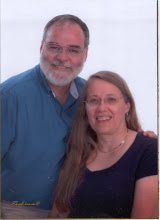This particular week in the liturgical year is chock full of feasts! Today was the celebration of the Dedication of the Church of St. John Lateran, which is one of the few liturgical events that takes precedence over Sunday . Monday is St. Leo the Great; Tuesday -- St. Martin of Tours; Wednesday -- St. Josaphat; Thursday-- St. Frances Xavier Cabrini. Friday is an ordinary day. Saturday morning celebrates St. Albert the Great, but the evening is trumped by Evening Prayer I of Sunday. (I deliberately mixed it up on all those links; there's a lot of other good stuff Google-able.)
But I don't especially want to talk about these particular celebrations. What I really want to stress is the advantage of having a liturgical year at all, with celebrations that come around on a predictable basis.
Although my husband and kids are all Catholic, and you probably can't tell it from this blog (:-D), I'm not. (The whole story is for another time, maybe.) Anyway, although not raised Catholic, I was raised in a church with a liturgical tradition. Advent is followed by Christmas is followed by Epiphany is followed by Lent is followed by Easter is followed by Pentecost is followed by summer (OK, we were a little sloppy!) and repeat. There were special things about each season, things to look forward to each year. And over the course of three years you were exposed to pretty much every story and theme of scripture.
When I went off to college, and later when I lived in Ohio, the evangelical groups I belonged to had a less specific year. Christmas and Easter, yes, but the rest not so much. And I missed it. It's harder to celebrate the spiritual side of Christmas when you haven't spent four weeks preparing your hear. (It's also easier to slip into the cultural/materialistic rut that had carols playing in Wal-Mart the day after Hallowe'en. I know Thanksgiving is a secular holiday, but come on, cut me a break!
I also missed Lent, strange as it sounds. When you haven't been fasting, or "giving up something for Lent" as I did as a child, or both, then the feast becomes less significant. In fact, if you never fast, a literal feast becomes just dinner. I wonder if some of the obesity epidemic is traceable to the idea that every day is a feast?
So when Roger returned to the Catholic church, and the kids joined him, I plunged back into the liturgical cycle with joy. And adding saints' days just added to the joy. No matter how you feel about declaring somebody "officially" a saint, those who have gone before us in the faith are worth celebrating. Also, it's very helpful. When an older friend in the choir tells me that she's not really just "Mary", but "Maria Magdalena" because of the day she was born, I can hit the liturgical calendar and know to send her a card on July 22!
Subscribe to:
Post Comments (Atom)

2 comments:
This is a busy feast week! You have some good points about the spiritual side of Christmas and Easter.
I heartily agree with you. Having been raised in Evangelical churches that didn't observe Lent or Advent, it was like a whole new world opened up to me in college when I began attending an Anglican church which observed the liturgical cycle.
I would love to hear more about you not being Catholic though the rest of your family is (particularly since K is Lutheran Missouri Synod, which is closed, closed, closed communion.
Post a Comment